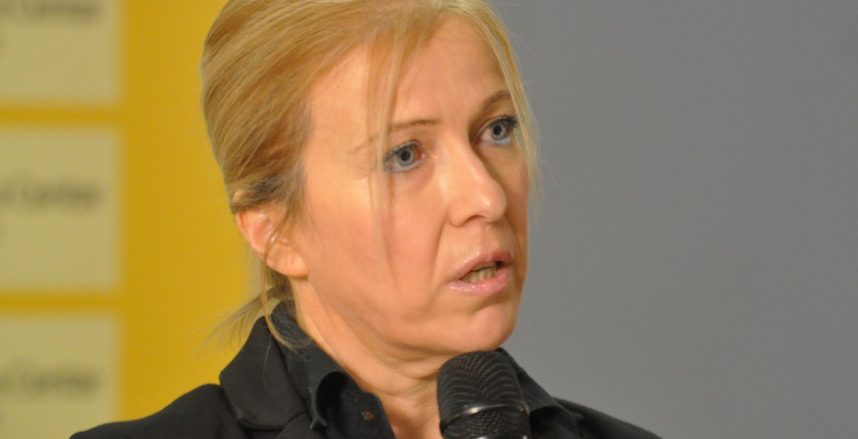
KosSev editor-in-chief Tatjana Lazarevic tells BIRN that pressure is growing amid the coronavirus pandemic.
Arrested on April 11 while trying to report on the fight against COVID-19, a prominent journalist in the mainly Serb north of Kosovo says local authorities have stepped up pressure on her outlet since the onset of the pandemic.
Tatjana Lazarevic, editor-in-chief of the online news portal KosSev, was detained by police on the road from the ethnically divided town of Mitrovica/Mitrovice to nearby Zvecan, where she planned to go to the local health centre to investigate what she said were “multiple complaints” about its readiness to deal with cases of the novel coronavirus.
“It is very difficult to get official information,” Lazarevic, 50, told BIRN.
She was accused of violating a weekend curfew imposed to slow the spread of the disease, despite the fact that, under rules in Kosovo, journalists are exempt from the movement restrictions. Released after several hours without charge, Lazarevic said she suspects the episode was the latest attempt to intimidate KosSev by those who run northern Kosovo.
“I believe that there is a visible intention to create a profile picture of our media as an enemy of the state, an enemy of the people, that we are an enemy of the government,” Lazarevic told BIRN.
That state is Serbia, which continues to hold sway in northern Kosovo more than 20 years after the majority-Albanian territory broke away in war and 12 years since it declared independence with the backing of the West.
The public health system in northern Kosovo continues to function, de facto at least, as part of the Serbian health system, reflected in the fact that COVID-19 tests in the north are processed in the Serbian capital, Belgrade. Serbia does not recognise Kosovo as independent.
Pandemic brings more pressure
According to Lazarevic, who grew up in Mitrovica/Mitrovice, the site aims to provide properly-reported, impartial and objective information, not necessarily exposés. But in Kosovo, particularly the north, that is enough to invite trouble.
In its short life, KosSev and its small staff has faced cyber-attacks, threats and pressure on a regular basis. And it has recently become worse, Lazarevic said.
“This last phase of pressure has intensified since the start of the pandemic,” she told BIRN.
On Saturday, Lazarevic set out on foot for Zvecan, hoping to see “on the spot” the work of the Zvecan health clinic but also to see the extent of police security along the road during the curfew. Other people were also on the road.
A police car passed her three times. The third time, it slowed down and Lazarevic approached, believing the officers wanted to see her ID. But the car moved on.
“When I was completely alone,” she said, “a van of the [police] intervention unit suddenly appeared. Through an open window, they said, ‘Good afternoon, you have violated the medical prohibition on movement’.” Ten minutes later, Lazarevic entered the vehicle and was taken to the police station.
Lazarevic said she tried to explain to the officers that she was out conducting her work as a journalist and to show them her press credentials. She was released after a couple of hours without being given any further information.
The mainly Serb north of Kosovo is controlled by Srpska Lista, which answers to Serbia’s ruling Progressive Party.
While relations with the Kosovo government in Pristina are far from rosy, she said, the threat comes from the north. Lazarevic described them as “friendly visits” – from a torched KosSev car in 2015 to direct threats, hacks and a wall of silence among public institutions.
“Srpska Lista controls all the power or all the political life of Serbs in Kosovo,” she said.